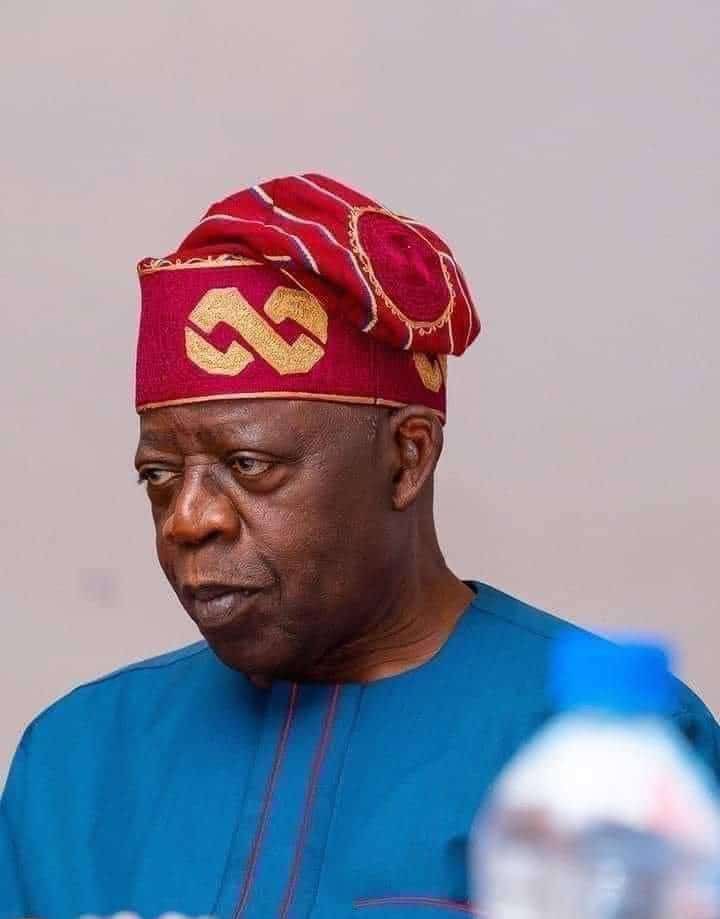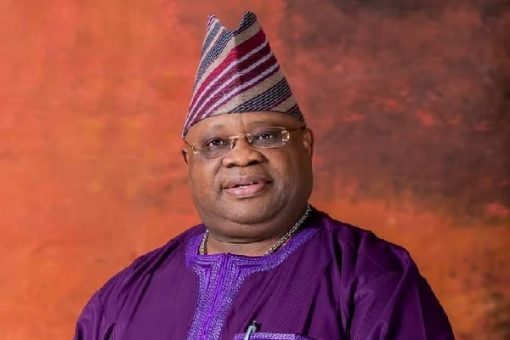
Tinubu’s Re-Election is a Fantasy – El-Rufai Declares in Scathing Remark

In a startling political statement that has ignited fierce debates across Nigeria, former Kaduna State governor and influential political heavyweight, Mallam Nasir El-Rufai, has declared that the possibility of President Bola Ahmed Tinubu securing a second term in office is not only unlikely but “impossible.” The blunt assertion, which comes barely a year into Tinubu’s administration, has been widely interpreted as a direct indictment of the current leadership and a sign of deepening cracks within the ruling All Progressives Congress (APC). “Anybody who thinks it's possible for President Tinubu to get re-elected is living in another country, not Nigeria. It's impossible for Tinubu to get re-elected,” El-Rufai said without mincing words.
The controversial remark, delivered with trademark candor, has sent shockwaves through Nigeria’s political landscape, raising eyebrows not just within the APC but across opposition parties and among the citizenry. While El-Rufai has never shied away from speaking his mind, the timing and tone of his comment suggest a growing disillusionment with the current administration’s performance and political strategy. Analysts are interpreting the statement as both a political warning and a calculated distancing from a presidency whose approval ratings have steadily declined amid economic turmoil and increasing public frustration.
Since assuming office in May 2023, President Tinubu’s government has faced a whirlwind of challenges. From the immediate removal of the fuel subsidy that led to an unprecedented spike in the cost of living, to a volatile foreign exchange market that has battered the naira, many Nigerians say life under Tinubu has become unbearable. The high hopes that accompanied his “Renewed Hope” agenda are now largely replaced with bitter complaints over inflation, joblessness, and insecurity.
It is within this climate of discontent that El-Rufai’s words have found fertile ground. The former governor, who played a pivotal role in the merger that birthed the APC and was once regarded as one of Tinubu’s key allies, appears to be charting a different course as 2027 approaches. Political observers say El-Rufai’s statement is not just a critique but a subtle repositioning ahead of the next general election. His political instincts, honed over decades in Nigeria’s rough-and-tumble political arena, suggest he is aligning himself with public sentiment, possibly laying the groundwork for a more prominent role or supporting an alternative candidate.
El-Rufai’s bombshell has also reignited long-standing questions about internal divisions within the APC. There have been murmurs of dissatisfaction among party stalwarts over Tinubu’s style of governance, appointments, and economic policies. The president’s insistence on implementing tough economic reforms without adequate social safety nets has alienated many, including members of his own party. The growing public protests, labour strikes, and restiveness among civil society groups indicate a nation on edge.
While Tinubu’s camp has yet to formally respond to El-Rufai’s stinging remarks, loyalists have begun a quiet pushback, accusing the former governor of betrayal and hypocrisy. They argue that El-Rufai himself was part of the APC machinery that brought Tinubu to power and that he shares responsibility for the government’s direction. Some have gone as far as questioning his motives, suggesting he is bitter over being sidelined in federal appointments or nursing personal political ambitions.
Yet, for many Nigerians, El-Rufai’s comment reflects a growing sentiment that President Tinubu may not have the political capital to mount a successful re-election bid. Despite having a formidable political structure and control of federal institutions, the president’s grassroots support appears to be waning. The hardship in the land is palpable. Basic commodities are out of reach for the average citizen, and many who once supported Tinubu have begun to publicly express regret. Town hall meetings, social media platforms, and radio call-ins are awash with angry voices demanding accountability and change.
Some critics have hailed El-Rufai for speaking what they term “truth to power,” commending him for having the courage to say what many within the political elite are afraid to utter. In contrast, others view his statement as opportunistic, timed to capitalize on the president’s dwindling popularity. Either way, the former governor’s intervention has reignited political discourse across the country.
In the streets of Abuja, Lagos, Kano, and Port Harcourt, reactions have been swift and passionate. Supporters of Tinubu insist that one year is too early to judge a presidency that inherited a litany of problems. They argue that the economic reforms, although painful, are necessary to reset the nation’s fiscal trajectory. “El-Rufai is entitled to his opinion, but Nigeria needs patience. The reforms will yield fruit. Tinubu is laying a solid foundation,” said one APC supporter on a live television panel.
However, others are not so convinced. “We were told to endure for just a few months. It’s been over a year and things are only getting worse. Now even people like El-Rufai are jumping ship. That tells you something,” said a Lagos-based trader.
For now, President Tinubu continues to project confidence, attending regional summits, unveiling policy frameworks, and promising better days ahead. But El-Rufai’s statement has pierced the veil of political optimism with cold realism. It underscores a growing perception that the 2027 general elections may not be a walk in the park for the incumbent.
Opposition parties, especially the Peoples Democratic Party (PDP) and the Labour Party (LP), are already seizing on the controversy, using it as ammunition to discredit the ruling party. There is growing speculation that behind-the-scenes political realignments may be underway, with key power brokers quietly weighing their options in light of the current discontent.
As 2025 progresses, the political climate in Nigeria is likely to become even more charged. El-Rufai’s comments have introduced a new level of unpredictability into the national conversation. Whether his words are prophetic or premature remains to be seen. But what is clear is that Nigeria’s political terrain is shifting, and the countdown to 2027 has unofficially begun.
In the end, El-Rufai’s declaration — “It’s impossible for Tinubu to get re-elected” — may either go down as a defining moment of political foresight or as a miscalculation in a country known for its political surprises. Either way, the battle for Nigeria’s soul is far from over.
Watch the video
"Anybody who thinks it's possible for President Tinubu to get re-elected is living in another country, not Nigeria. It's impossible for Tinubu to get re-elected."
— Esen (@SemiNigerian) June 18, 2025
-Nasir El-Rufai
pic.twitter.com/kfCNfGa4TI


